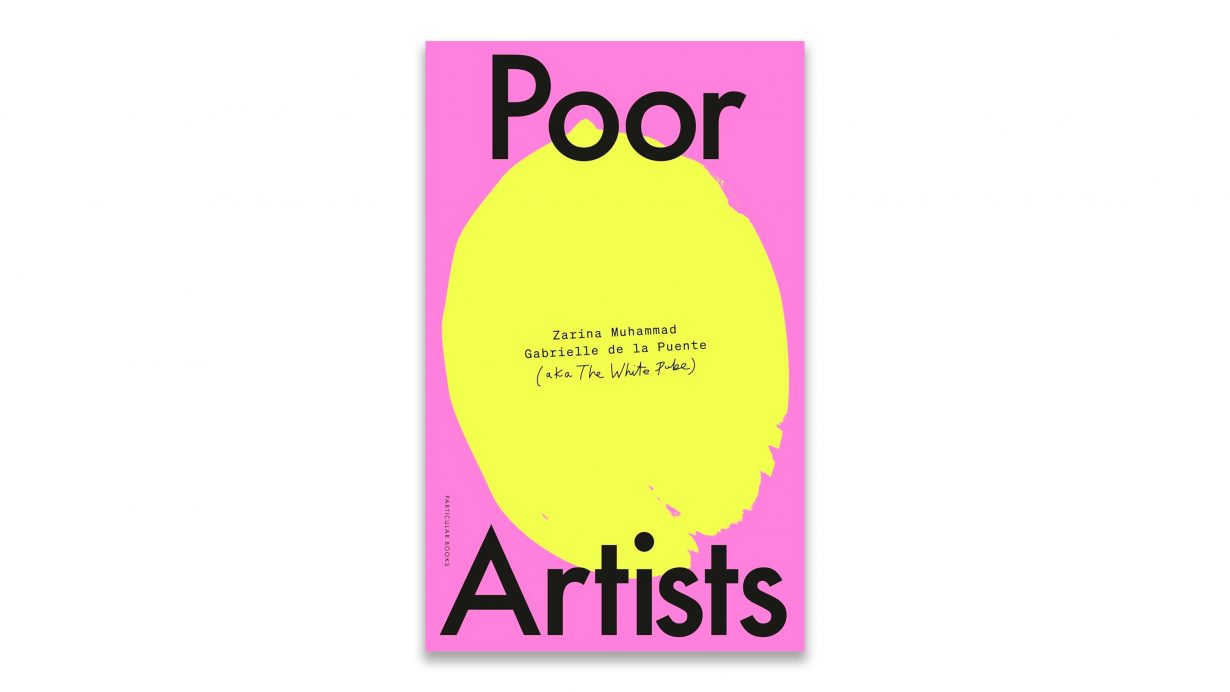According to this fable by The White Pube, if the artworld doesn’t kill you, it will suck the life out of you

‘I’m dying. Or this is a panic attack,’ begins Quest Talukdar, protagonist of Poor Artists, a fable about the ills of the artworld by Gabrielle de la Puente and Zarina Muhammad, aka millennial art critics The White Pube. Billed as a mix of fact and fiction, Poor Artists attacks an industry it characterises as bigoted and riddled with inequality. The moral of the story: if the artworld doesn’t kill you, it will suck the life out of you. The only way to resist? Refuse to play by its rules.
This is not a book that deals in political or literary nuance. Quest, a working-class Muslim artist from Liverpool, burnt out from chasing a career in an industry that worships wealth and whiteness, must learn to love art again – solely for the pleasure of making it. From panicking in the airplane loo en route to an art fair, we later see her struggling to make ends meet after graduating from art school while white men who wear cravats hire galleries to show their work. Eventually she ditches the London rat-race and joins a studio collective in Liverpool, where she is taken under the wing of salt-of-the-earth northerner Sheila. Her new mentor encourages Quest to make art that the builders down the road can afford (‘my own people’, Sheila says).
Since meeting at art school in 2013, The White Pube have built a brand as purveyors of first-person art criticism, becoming social-media microcelebrities. Eschewing established art publications, they publish on their own website, adopting a writing style peppered with emojis, diaristic musings and political grievances that often reads like an extended Instagram post. Part of their appeal has been a willingness to go for blood in the culture war. Their combination of confessional writing and moral policing successfully tapped into the zeitgeist – agitating for those accused of holding transphobic views to lose their jobs, or calling for the removal of Tate Britain’s ‘racist’ Rex Whistler mural. Celebrated as artworld outsiders, they have become cultural darlings who are written about in Vogue and who create sponcon for Nando’s.
At times, Poor Artists reads like Jacqueline-Wilson-does-art-criticism: a novel in which a plucky underdog with a corny name struggles to get by in a harsh world, with a plot engineered to school readers in progressive orthodoxies about social inequality. But The White Pube’s foray into fiction lacks the parasocial allure of their criticism. The prose is often stodgy and uneven, the authors overly reliant on repeating the identity-political catechism and more comfortable listing familiar resentments than offering a compelling vision of what good art might look like.
The book’s moral crux – and Quest’s political awakening – occurs in a long conversation with an old friend she bumps into at an art fair. It quickly turns into a litany of political statements about the failures of capitalism, the effectiveness of anarchy and why Surrealist art is anticapitalist. (This last because it ‘creates a plastic state in which things can start to change’; though the inclusion of Salvador Dalí’s ‘lobster telephone’ as an example is odd, given his well-documented love of making as much money as possible.) Choice pronouncements include, ‘Capitalism tells us that there are certain materialistic things we need in order to be happy, but the closer we get to obtaining them, the further we are from happiness.’ Part of The White Pube’s USP is not being experts, favouring subjective responses over research-based expertise. But here, what might elsewhere pass a marker of authenticity comes across as muddled, dogmatic and – in their choices of art historical references – unwittingly conservative.
In moments like these, where there is a lot of telling and hardly any showing, the story suffers. Bashing the reader over the head with Anarchism 101 also highlights the elephant in the room. There’s nothing wrong with wanting to reach the widest audience, but publishing with an offshoot of commercial behemoth Penguin Random House does little for the book’s anarchist credentials. Inevitably this undermines the hundreds of pages of proselytising about how detrimental it is for artists to chase mainstream recognition, showing just how far The White Pube are from a nice lady called Sheila and her grassroots, countercultural artist collective.
Poor Artists by Gabrielle de la Puente and Zarina Muhammad. Particular Books, £20 (hardcover)